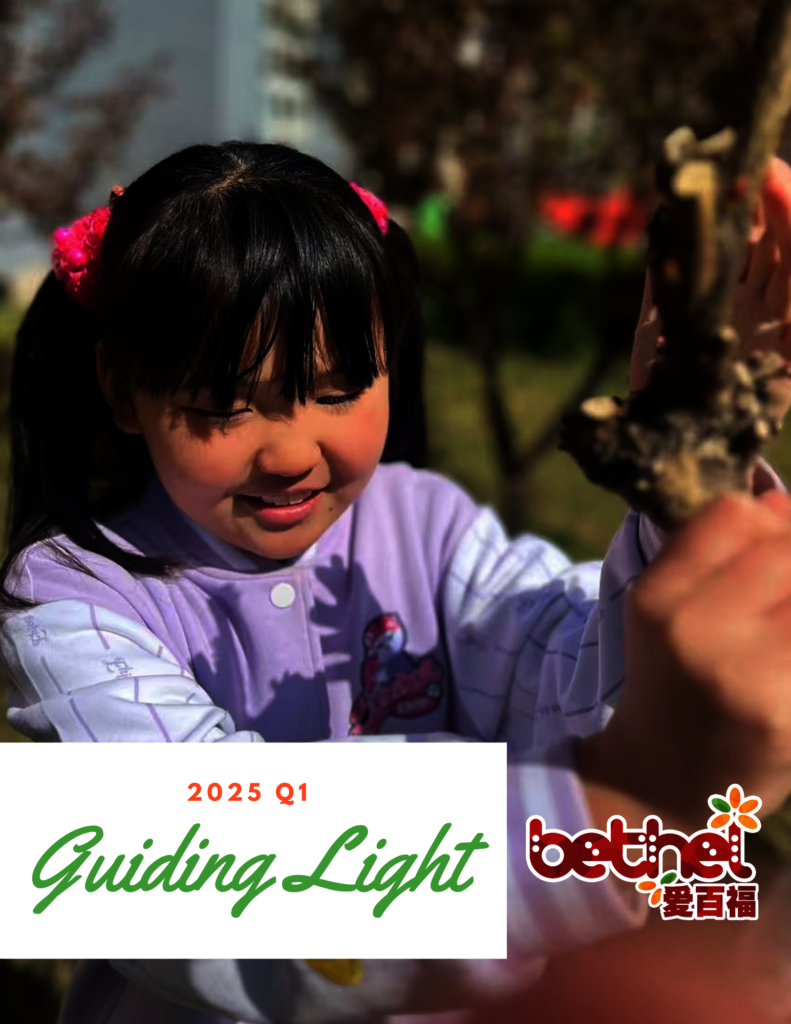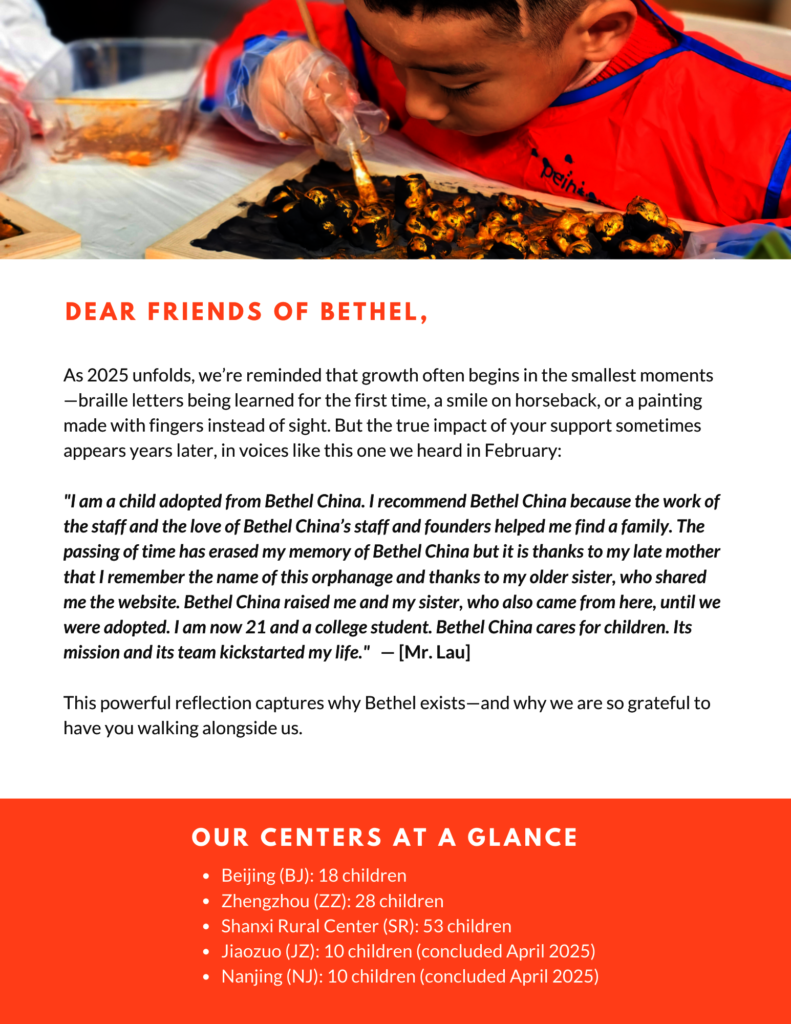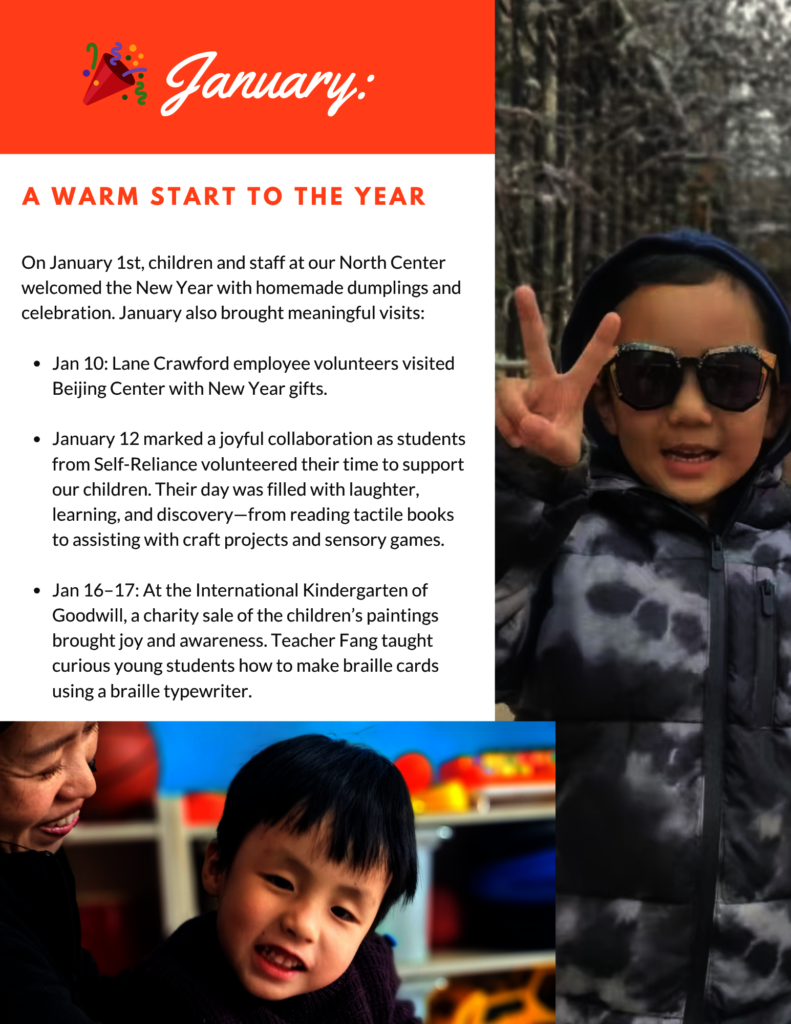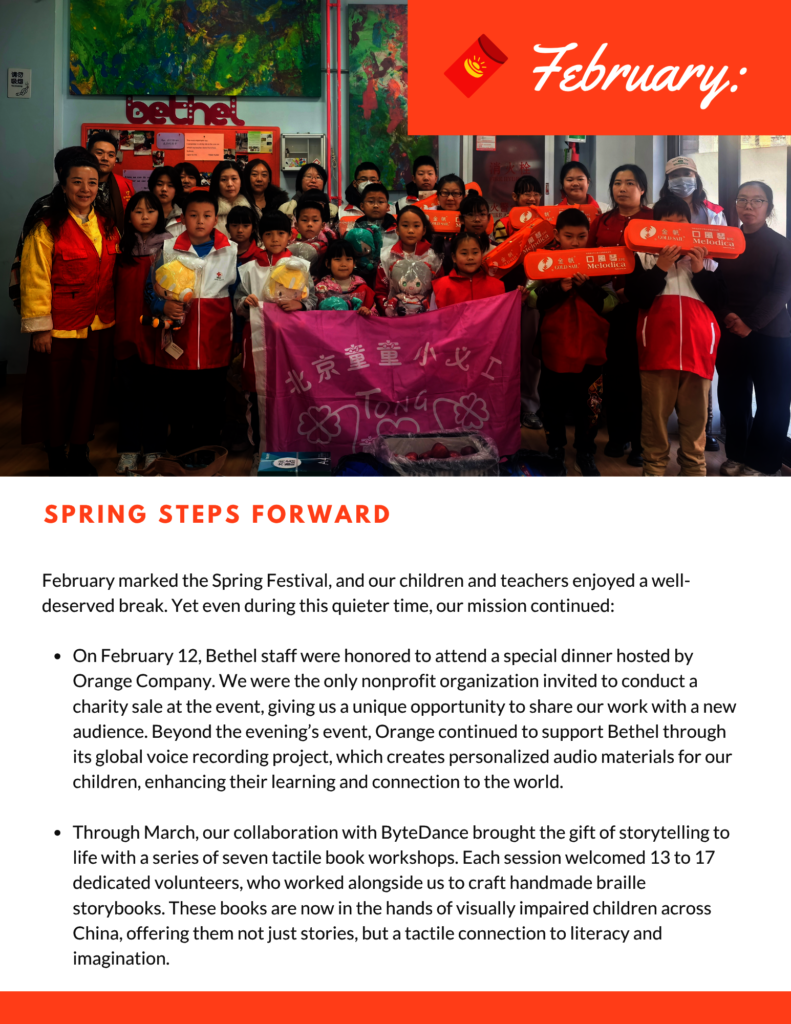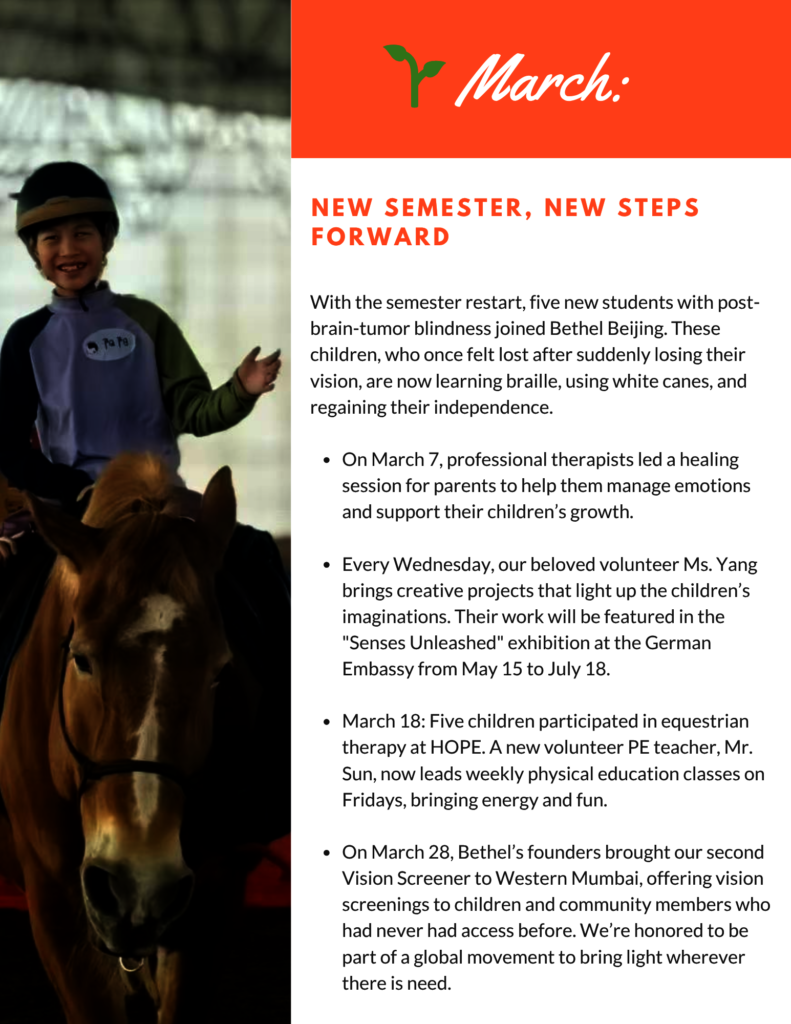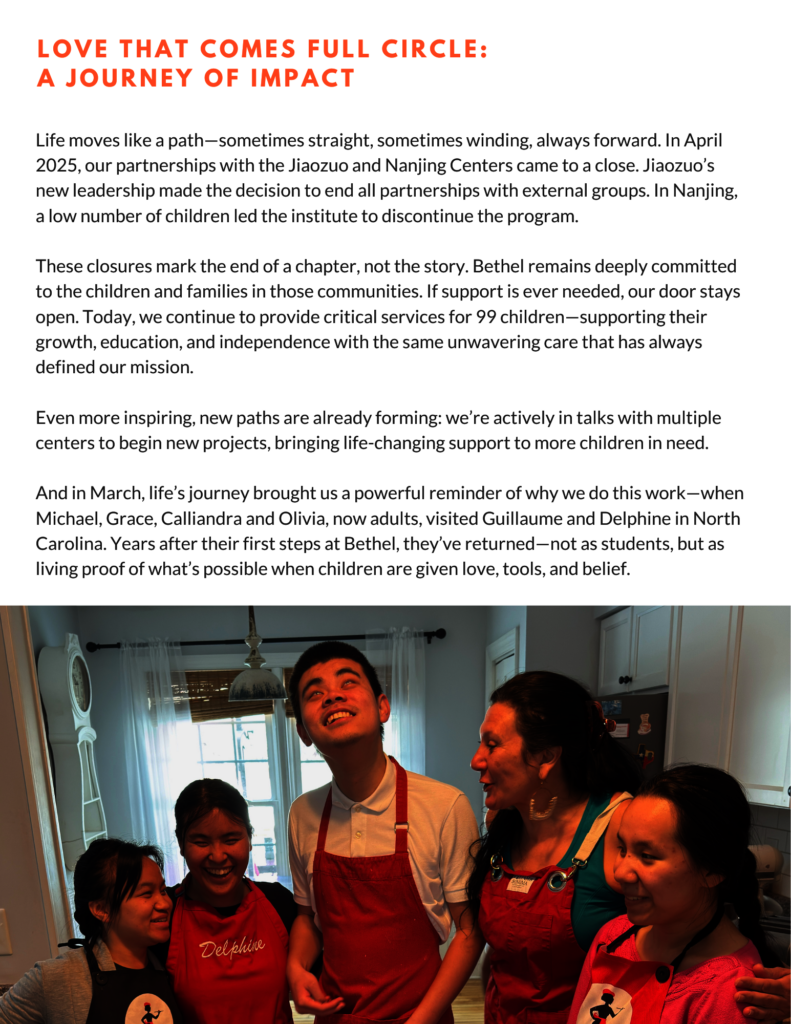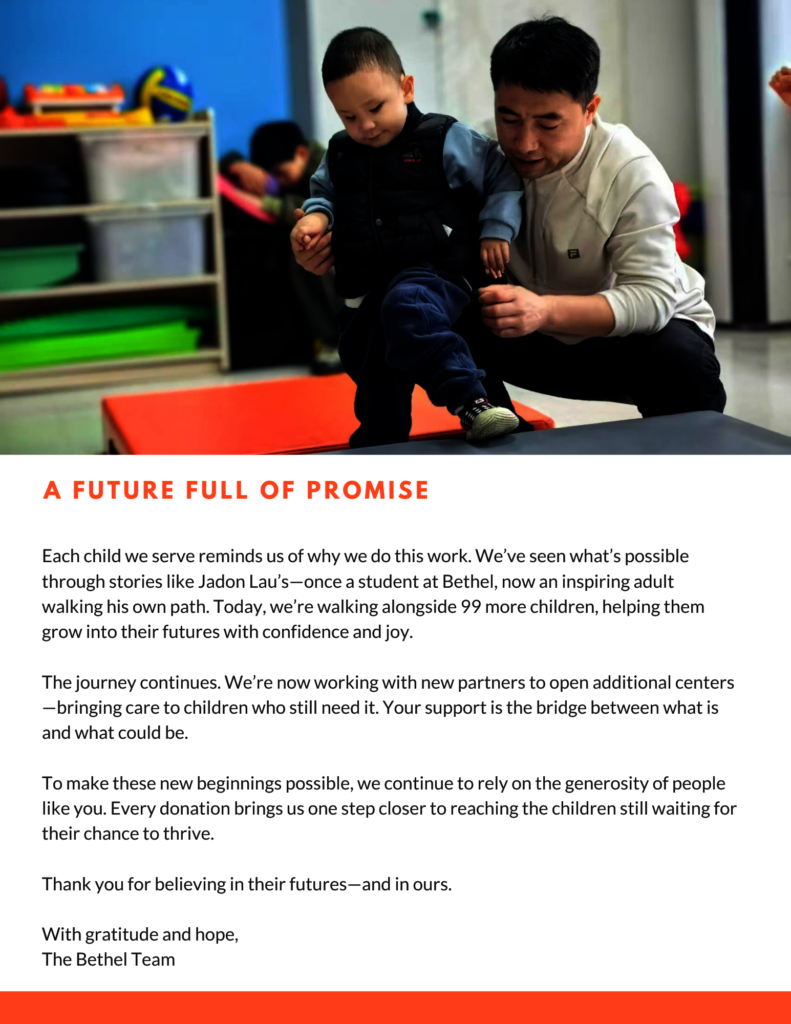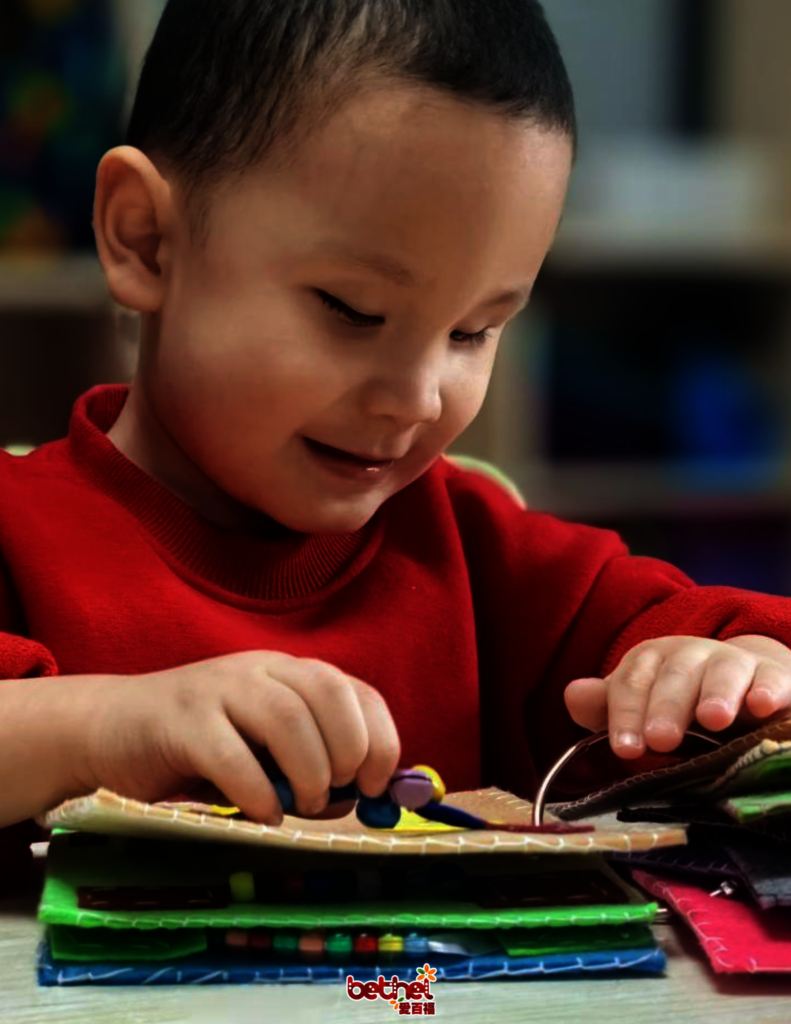By Zach Johnson | Project Manger
Dear Friends of Bethel,
As 2025 unfolds, we’re reminded that growth often begins in the smallest moments—braille letters being learned for the first time, a smile on horseback, or a painting made with fingers instead of sight. But the true impact of your support sometimes appears years later, in voices like this one we heard in February:
"I am a child adopted from Bethel China. I recommend Bethel China because the work of the staff and the love of Bethel China’s staff and founders helped me find a family. The passing of time has erased my memory of Bethel China but it is thanks to my late mother that I remember the name of this orphanage and thanks to my older sister, who shared me the website. Bethel China raised me and my sister, who also came from here, until we were adopted. I am now 21 and a college student. Bethel China cares for children. Its mission and its team kickstarted my life." — [Mr. Lau]
This powerful reflection captures why Bethel exists—and why we are so grateful to have you walking alongside us.
Our Centers at a Glance:
January: A Warm Start to the Year
On January 1st, children and staff at our North Center welcomed the New Year with homemade dumplings and celebration. January also brought meaningful visits:
February: Spring Steps Forward
February marked the Spring Festival, and our children and teachers enjoyed a well-deserved break. Yet even during this quieter time, our mission continued:
March: New Semester, New Steps Forward
With the semester restart, five new students with post-brain-tumor blindness joined Bethel Beijing. These children, who once felt lost after suddenly losing their vision, are now learning braille, using white canes, and regaining their independence.
Love That Comes Full Circle: A Journey of Impact
Life moves like a path—sometimes straight, sometimes winding, always forward. In April 2025, our partnerships with the Jiaozuo and Nanjing Centers came to a close. Jiaozuo’s new leadership made the decision to end all partnerships with external groups. In Nanjing, a low number of children led the institute to discontinue the program.
These closures mark the end of a chapter, not the story. Bethel remains deeply committed to the children and families in those communities. If support is ever needed, our door stays open. Today, we continue to provide critical services for 99 children—supporting their growth, education, and independence with the same unwavering care that has always defined our mission.
Even more inspiring, new paths are already forming: we’re actively in talks with multiple centers to begin new projects, bringing life-changing support to more children in need.
And in March, life’s journey brought us a powerful reminder of why we do this work—when Michael, Grace, Calliandra and Olivia, now adults, visited Guillaume and Delphine in North Carolina. Years after their first steps at Bethel, they’ve returned—not as students, but as living proof of what’s possible when children are given love, tools, and belief.
A Future Full of Promise
Each child we serve reminds us of why we do this work. We’ve seen what’s possible through stories like Jadon Lau’s—once a student at Bethel, now an inspiring adult walking his own path. Today, we’re walking alongside 99 more children, helping them grow into their futures with confidence and joy.
The journey continues. We’re now working with new partners to open additional centers—bringing care to children who still need it. Your support is the bridge between what is and what could be.
To make these new beginnings possible, we continue to rely on the generosity of people like you. Every donation brings us one step closer to reaching the children still waiting for their chance to thrive.
Thank you for believing in their futures—and in ours.
With gratitude and hope,
The Bethel Team
Links:
By Zach Johnson | Project Manager
By Zach Johnson | Project Manager
Project reports on GlobalGiving are posted directly to globalgiving.org by Project Leaders as they are completed, generally every 3-4 months. To protect the integrity of these documents, GlobalGiving does not alter them; therefore you may find some language or formatting issues.
If you donate to this project or have donated to this project, you can receive an email when this project posts a report. You can also subscribe for reports without donating.
Support this important cause by creating a personalized fundraising page.
Start a Fundraiser